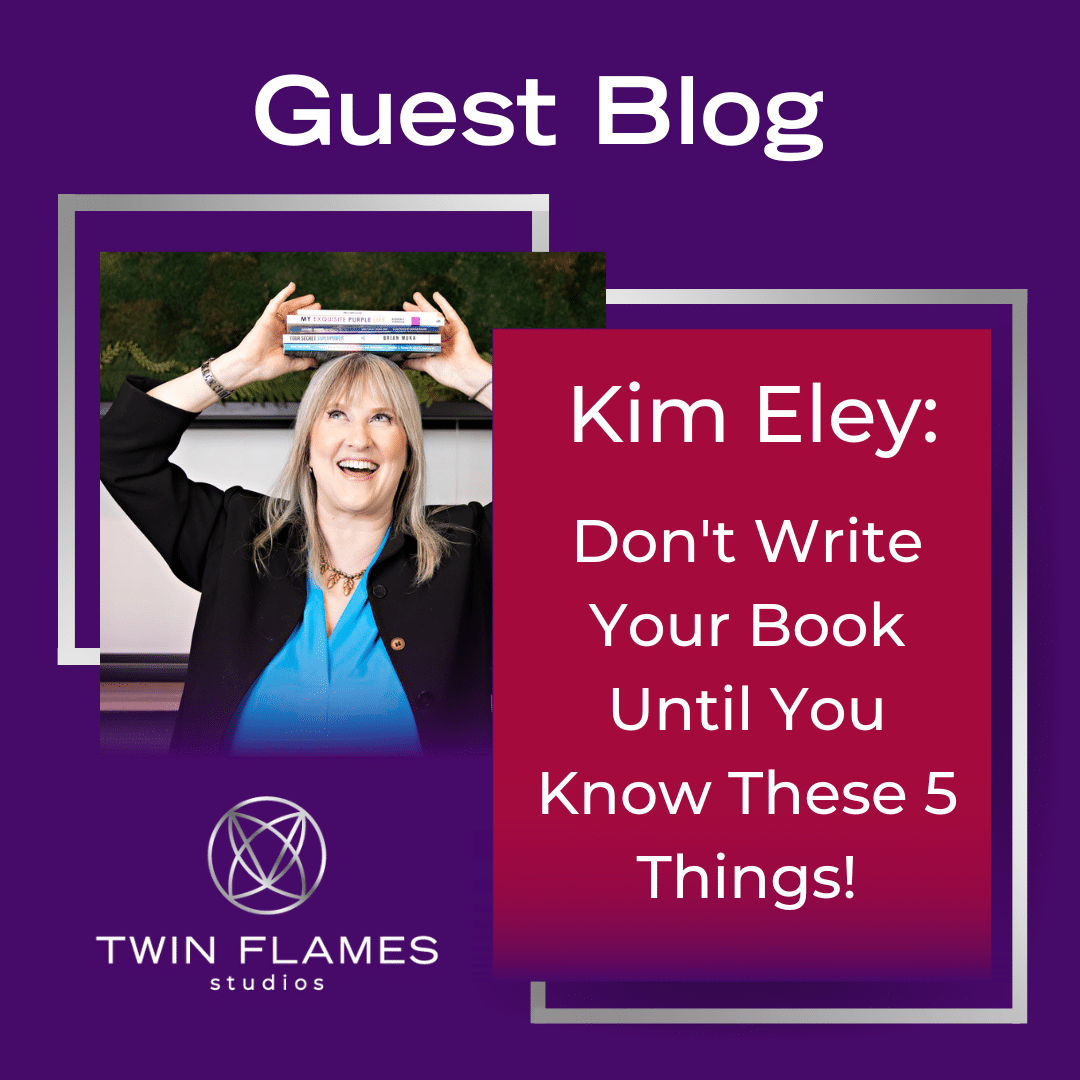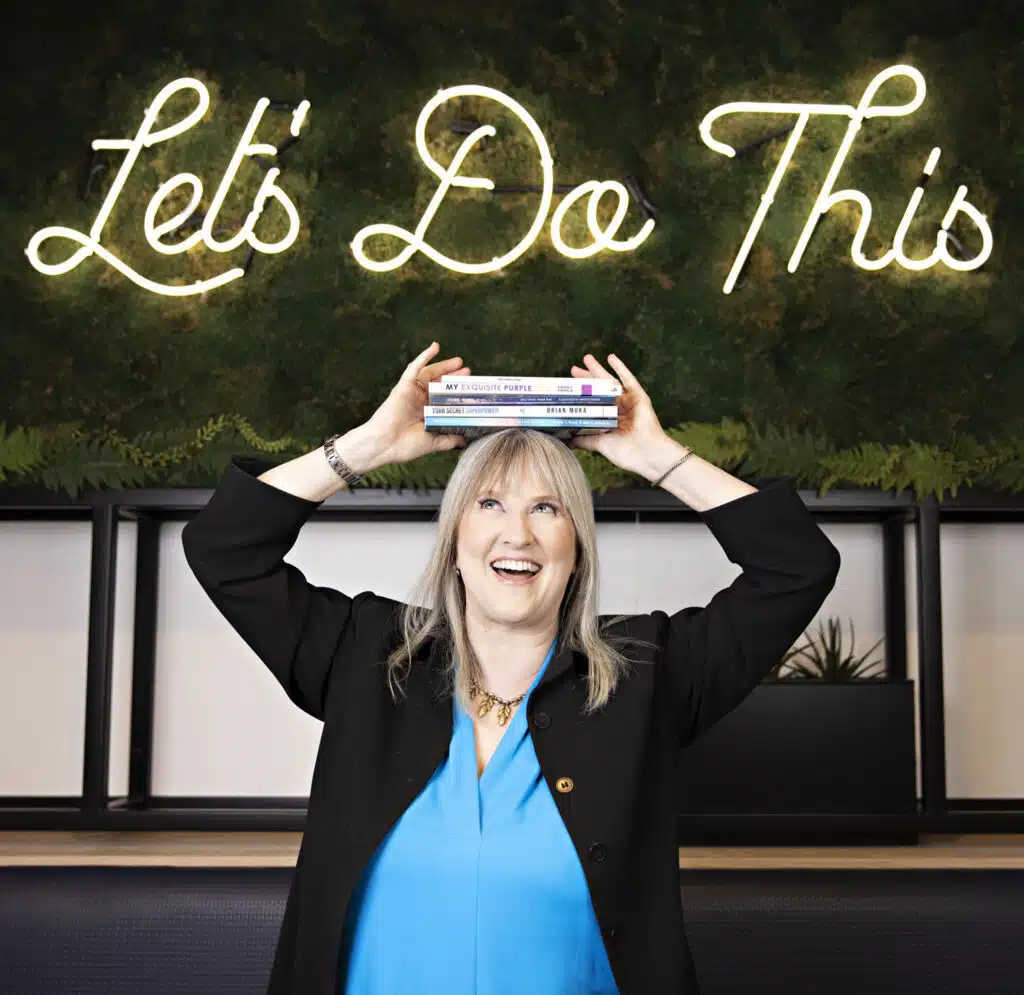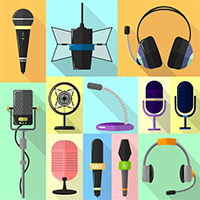
By Kim Eley, CEO/Founder of KWE Publishing

So many writers dream of publishing their books, but if you don’t know where to start, the process of actually publishing a book can seem daunting! The process of publishing a book can seem like it’s shrouded in secrecy.
In particular, writers who have never published a book before often are filled with questions about how to publish, what their publishing options are, when to contact a publisher, what marketing will look like, and much more.
Here’s some good news: even though you might be overwhelmed, you can publish a book—even if you’ve never published anything before! There are so many amazing first-time authors whose stories have changed readers’ lives, and your story deserves to be told, too!
To make the concept of publishing a little more approachable, we’re going to share five things writers who want to publish their first book should know about the world of publishing!
1. There are a variety of ways you can publish your book.
When writers think about publishing their books, they often think about one of two things: working with big-name publishers (also known as traditional publishing) or self-publishing. And while these are both options, there’s a third option as well—working with a hybrid publisher.
Let’s break down the three most common ways books are published:
- Traditional publishing: you typically submit your manuscript or pitch your manuscript to a publisher, often through an agent; the publisher in these cases often has more control of your manuscript, the layout of the book, etc., and the royalties you receive can vary from publisher to publisher.
- Hybrid publishing: this is sometimes considered an option that’s in between traditional publishing and self-publishing. You still maintain a good amount of control over your book, but you’ll also work with editors and publishers who can do much of the technical work that’s involved in publishing a book (such as ensuring your book makes it to wholesalers, formatting your book, etc.).
- Self-publishing: you have ultimate control over your book, and while you have the potential to keep more of the money you make, you also have to pay for editors, illustrators, marketing, etc., directly, and you will need to research the ins and outs of what’s needed to publish your book on particular platforms (obtaining your ISBN, creating and formatting your documents, etc.).
So, what’s the best option for you? It depends on your timeline, budget, patience, and goals. If you want to publish and retain total control over the process, want to keep the bulk of what you make off your book, are okay with doing some research, and you’re willing to independently hire editors and/or illustrators, self-publishing might be a good option. Hybrid publishing is a great option for writers who want to maintain control over their books but need some help with formatting, editing, and other behind-the-scenes things involved in publishing. Traditional publishing can be time-consuming, especially for first-time authors who don’t have an agent, but pitching your manuscript to a traditional publisher can lead to your book being picked up in some cases (though it’s not always guaranteed, of course).
Ultimately, none of these options are “better” or “worse” than the others—it all depends on what you want!
2. You can contact a publisher before your book is complete.
If you want to work with a traditional or hybrid publisher, you don’t have to wait until your book is complete to reach out. In fact, it can be useful to start working with a publisher well before you plan to publish your book!
Though every book will vary (and some publishers will have a preference as to when you submit your manuscript), manuscripts often go through several iterations. After a first draft is written, editors who work with your publisher (if you choose to work with a hybrid publisher or traditional publisher) will review your manuscript to look for any grammatical, technical, or developmental issues that may need to be corrected.

For authors who want to self-publish, it’s often a good idea to contact an editor (or several editors, depending on the length of your manuscript and the genre you’re writing in) soon after you’ve finished your first draft. Being open to revisions and suggestions from experts can help you create a more polished book, which translates to giving readers a better reading experience.
3. You don't worry too much about formatting if you're using a hybrid publisher or a traditional publisher.
Often, people worry about making their manuscript look a particular way before sending it off to a publisher, and while you do want your work to be legible, the format you send your book in is likely not the way your book will ultimately look if you work with a traditional or hybrid publisher!
That doesn't mean you want your formatting to be a total mess, of course—after all, being organized as you write will make the process of publishing less time-consuming!—but you don't necessarily have to spend hours or lots of money on trying to format your book yourself.

Most publishers are familiar with taking manuscripts written in Google Docs or Microsoft Word and formatting them as needed. Formatting is a part of the publishing process that publishers often take care of, so you don't need to buy pricey software that may not be needed on your end, to begin with.
If you're self-publishing, depending on the platform(s) you're using, you still likely won't have to spend too much on formatting; many platforms, such as Kindle Direct Publishing (KDP), offer templates that can be used for formatting.
Of course, if you're self-publishing and are struggling to get your format to look just right, don't hesitate to reach out to an expert who can help! You can find experienced individuals willing to help you format your book on sites like Upwork or Fiverr, for example.
4. It’s never too soon to start marketing.
Regardless of what method you choose to use when publishing your book, it’s never too early to begin your marketing efforts.
When working with a hybrid or traditional publisher, some (if not most, in some cases) of the marketing efforts will be done for you. With a hybrid publisher, you may be offered marketing packages that you can use when marketing your book, or you can choose to go solo if you’re a marketing whiz.
And when you self-publish, you’ll be the one who’s responsible for your marketing; in some cases, you might want to hire a professional, but some authors prefer to do the marketing on their own.
There are several great ways to market yourself and your book well before it’s published, including by creating a mailing list, talking about the publishing and writing processes on a blog or social media platform, creating a website for your book, paying for ads, appearing on podcasts…the list goes on!
By marketing your book before it’s published, you can build up an audience. An audience that knows you (aka a warm market) is generally more likely to purchase something of yours than an audience that doesn’t know you (aka a cold market). Plus, building an audience early ensures you can continue to share about future projects beyond your first book!
Of course, you can also market your book well after it’s been published, too, especially if your book is coming out in new formats, such as an audiobook, after the first printed edition of your book has been published.
5. You define what success looks like when it comes to your book!

Every writer has a different reason for publishing their book. Some writers want to entertain readers, some want to educate and advocate for a particular group of individuals, and others just want to share a story that’s important to them.
If you’re working with a hybrid or traditional publisher, spend some time talking to them about what your expectations are for your book. They can help you figure out what’s realistic and manageable, and what steps you need to take to meet your goals.
And if you choose to go the self-publishing route, it’s still important to clearly define your goals for your book—and do a bit of research to learn the best ways to meet them. You don’t have to wait until you’ve finished your book to start this process!
Just because you’ve never published a book before doesn’t mean the process has to be overly complex or difficult!
Whether you choose to self-publish, work with a hybrid publisher, or work with a traditional publisher, you can create and share your story with the world—it just takes some time, patience, and a willingness to learn and accept some outside help when needed.
What most surprised you, or what do you still want to know? Let us know your thoughts below!
More About Kim Eley
Specializing in personal development books and thoughtful children's books is the mission of Kim Wells Eley’s company, KWE Publishing; the common thread of both is to help people see what's possible and shift to a more enjoyable, fulfilled life. she says. As a writing coach and publishing consultant, Kim gives clients six steps to make their books a reality.
Kim is happily married to her BFF and has been for over 20 years. She’s a speaker; an author; a resident of Prince George, Virginia; a cat lover; a collector of orchids; and she gets all of her news from comedy shows.


Create a Professional and Profitable Audiobook!
The Insiders Guide to Audiobook Production gives you the inside track to create a high-quality and effective audiobook and reach a much larger new audience.
Thank you!
Please check your inbox for your email.
If you don't see anything in a few minutes, please check your spam folder.

Leave a Reply